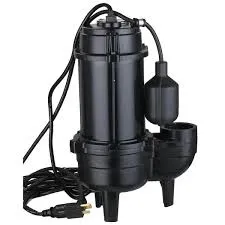Thai
- Afrikaans
- Albanian
- Amharic
- Arabic
- Armenian
- Azerbaijani
- Basque
- Belarusian
- Bengali
- Bosnian
- Bulgarian
- Catalan
- Cebuano
- Corsican
- Croatian
- Czech
- Danish
- Dutch
- English
- Esperanto
- Estonian
- Finnish
- French
- Frisian
- Galician
- Georgian
- German
- Greek
- Gujarati
- Haitian Creole
- hausa
- hawaiian
- Hebrew
- Hindi
- Miao
- Hungarian
- Icelandic
- igbo
- Indonesian
- irish
- Italian
- Japanese
- Javanese
- Kannada
- kazakh
- Khmer
- Rwandese
- Korean
- Kurdish
- Kyrgyz
- Lao
- Latin
- Latvian
- Lithuanian
- Luxembourgish
- Macedonian
- Malgashi
- Malay
- Malayalam
- Maltese
- Maori
- Marathi
- Mongolian
- Myanmar
- Nepali
- Norwegian
- Norwegian
- Occitan
- Pashto
- Persian
- Polish
- Portuguese
- Punjabi
- Romanian
- Russian
- Samoan
- Scottish Gaelic
- Serbian
- Sesotho
- Shona
- Sindhi
- Sinhala
- Slovak
- Slovenian
- Somali
- Spanish
- Sundanese
- Swahili
- Swedish
- Tagalog
- Tajik
- Tamil
- Tatar
- Telugu
- Thai
- Turkish
- Turkmen
- Ukrainian
- Urdu
- Uighur
- Uzbek
- Vietnamese
- Welsh
- Bantu
- Yiddish
- Yoruba
- Zulu
Telephone: +86 13120555503
Email: frank@cypump.com
ต.ค. . 19, 2024 04:31 Back to list
Choosing the Right Basement Sewer Pump for Your Home Drainage Needs
Understanding Basement Sewer Pumps A Essential Component for Homeowners
Basements can often be the most vulnerable areas of a home, particularly when it comes to water intrusion and sewage issues. Many homeowners in regions prone to flooding, heavy rainfall, or sewer backups rely on a crucial device known as a basement sewer pump. This device, though often overlooked, plays an essential role in protecting a basement from the dangers of sewage and flooding.
What is a Basement Sewer Pump?
A basement sewer pump, also known as a sewage ejector pump, is a type of submersible pump specifically designed to handle wastewater and sewage from fixtures located below the main sewer line of a home. These could include toilets, sinks, and showers in the basement. The primary function of this type of pump is to lift the waste and direct it towards the main sewer line. Without such a pump, homes situated below the street level would face significant plumbing challenges, leading to potential health hazards and structural damage.
How Does it Work?
The operation of a basement sewer pump is relatively straightforward. When wastewater flows into a sump basin or pit, the pump is activated once the water level rises to a predetermined level. The sewer pump then pushes the sewage through pipes and out into the municipal sewer system or a septic tank, depending on the home’s setup.
Most modern sewer pumps are equipped with powerful motors capable of handling solid waste. They typically come with features such as an automatic float switch, which ensures that the pump operates only when needed, minimizing energy consumption and wear on the pump.
Benefits of Using a Basement Sewer Pump
1. Prevent Water Damage The most significant advantage of having a basement sewer pump is the prevention of water damage. Sewage can cause extensive damage to walls, floors, and belongings. A functional sewer pump ensures that any waste is quickly removed, thus safeguarding the integrity of your home.
2. Minimize Health Risks Sewage backup poses serious health risks, as it contains harmful bacteria and toxins. A basement sewer pump helps mitigate these dangers by ensuring that waste is efficiently removed from the home.
basement sewer pump

3. Improved Comfort A clean and dry basement is vital for the comfort of any home. Regularly functioning sewer pumps help maintain a pleasant environment by preventing unpleasant odors and unhygienic conditions.
4. Increased Property Value Homes equipped with a basement sewer pump may see an increase in property value. Prospective buyers appreciate the security that comes from knowing that the home is protected against potential sewage problems.
Maintenance Tips for Your Basement Sewer Pump
Ensuring that your basement sewer pump functions efficiently is crucial. Here are some maintenance tips to consider
- Regular Inspections Periodically check the pump and sump basin for any signs of wear or damage. Look for debris or clogs that could hinder the pump’s operation.
- Test the Pump Regularly test the pump by pouring water into the sump pit to ensure that it activates and functions correctly.
- Clean the Basin Remove any sediment or debris from the sump basin. This helps in extending the life of the pump.
- Professional Servicing Consider scheduling professional maintenance at least once a year to ensure that your sewer pump is in optimal working condition.
Conclusion
A basement sewer pump is an invaluable addition to any home with a basement, particularly those susceptible to flooding or sewage issues. It not only protects your home from significant damage but also promotes a healthier living environment. By understanding its functions and maintaining it properly, homeowners can rest easy knowing their basement is safe from the perils of water and sewage backup. Investing in a quality sewer pump is not just a matter of convenience—it’s a vital step in safeguarding your home.
-
Heavy-Duty Mining Sludge Pumps - Wear-Resistant Slurry Handling
NewsAug.02,2025
-
Horizontal Split Case Pump with GPT-4 Turbo | High Efficiency
NewsAug.01,2025
-
ISG Series Pipeline Pump - Chi Yuan Pumps | High Efficiency, Durable Design
NewsAug.01,2025
-
Advanced Flue Gas Desulfurization Pump with GPT-4 Turbo | Durable & Efficient
NewsJul.31,2025
-
ISG Series Vertical Pipeline Pump - Chi Yuan Pumps | Advanced Hydraulic Design&Durable Construction
NewsJul.31,2025
-
ISG Series Vertical Pipeline Pump - Chi Yuan Pumps | Energy Efficient & Low Noise
NewsJul.31,2025










